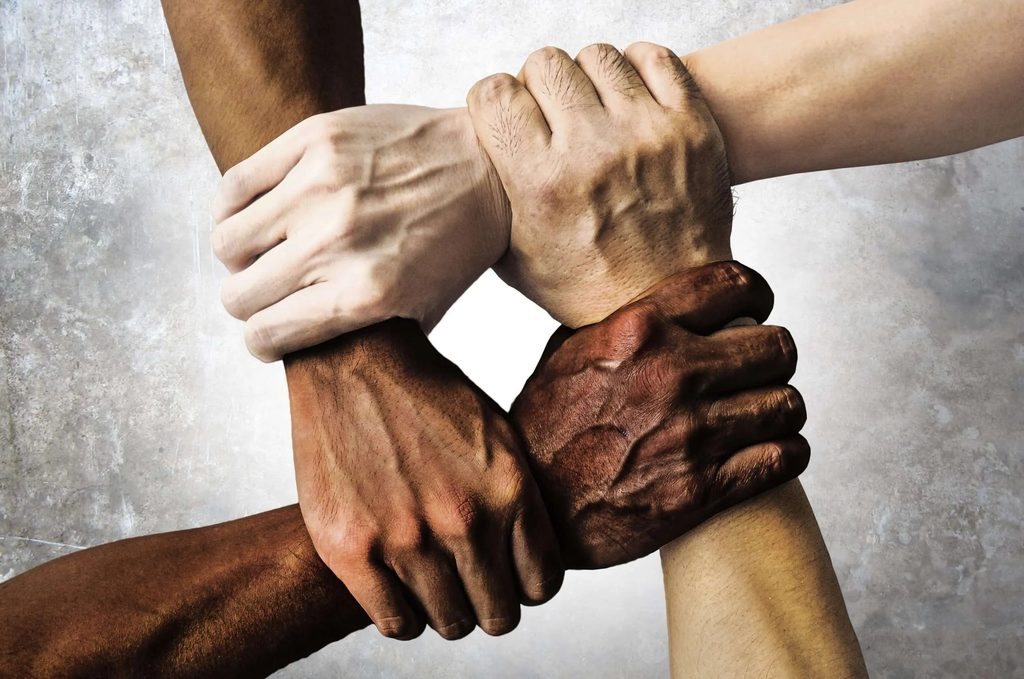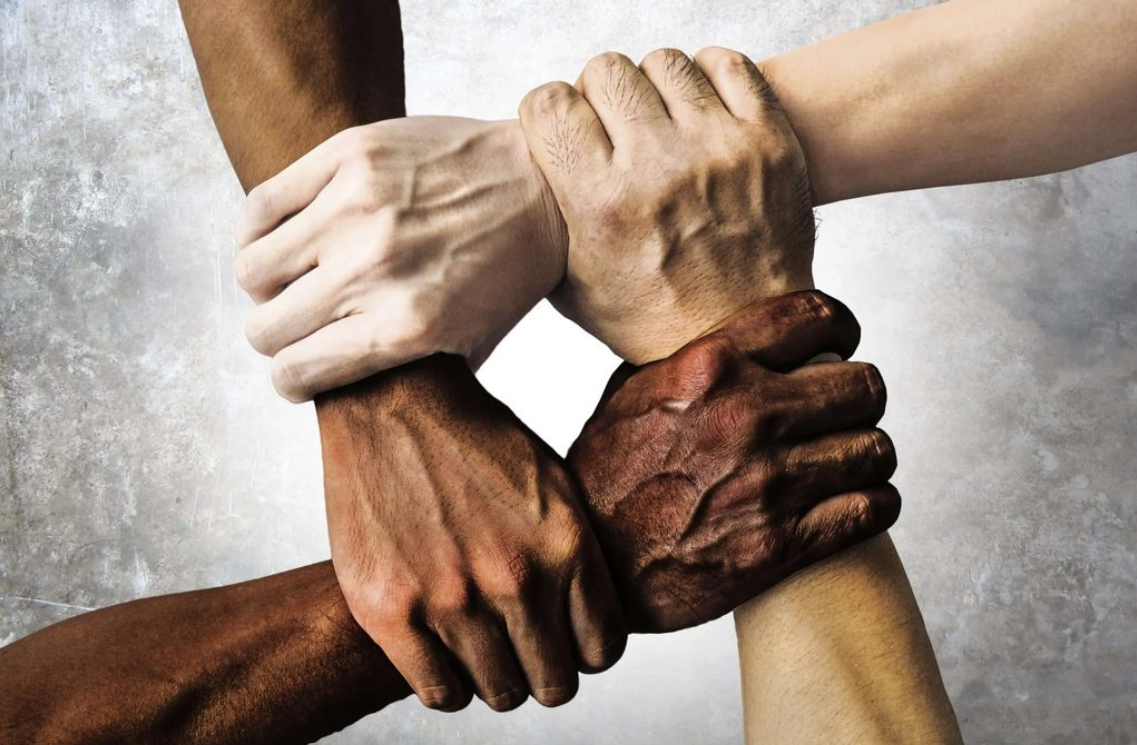I have family and close friends who are both Muslims and Jews. We have family and close friends who also belong to many other faiths, cultures and communities. Our bond is strong and unbreakable because it’s built on love, respect and our shared humanity.
This bond endures despite the vile and despicable hate speech that, unfortunately, echoes from certain corners of society and from different groups of people and religious backgrounds based all over the world.
In today’s world, where divisive narratives often drown out voices of unity, it’s crucial to keep our hearts and minds open to dialogue. Only through genuine understanding can we hope to bridge the gaps created by prejudice and fear.
But to achieve this, we must courageously explore the roots of hatred. We must seek to understand why some communities, cultures, and religious groups harbour hostility towards others. Unless we delve into the reasons behind these deeply embedded ideologies of hate, we’ll never reach the core of the problem.
Hatred is not born; it’s taught. Indoctrination of any kind is most effective when it takes place during a person’s formative years.
Whether the indoctrination involves beliefs, principles, values, or ideology, it takes root powerfully in a young, impressionable mind. The teachings become a lens through which the individual views the world and everyone around them, shaping their heart, soul, and mind.
Imagine the power of a narrative planted early in life. Without realising it, a person carries those teachings into adulthood, allowing them to influence their every thought and action.
If that narrative is one of division, violence and contempt, then those feelings will permeate and project the individual’s perspective, affecting how they feel and relate to others.
But if the narrative is one of love, compassion, and respect, then their worldview will reflect those vibrant virtues birthed, I believe, in the realm of the Almighty.
To break the cycle of hatred, we must understand the narratives at play. We must examine the ideologies that shape people’s lives and perspectives. Let’s look briefly at some examples to understand how powerful, and at times potently abrasive and abhorrent, these teachings can be:
Communism
Communism is based on socialism and the pursuit of equal opportunity for all. At its core, it seeks to eliminate class disparities and create a society where resources are shared equitably. Yet, the ideology has been both celebrated for its vision of equality and sometimes criticised for the ways it’s been implemented.
Christianity
Christianity is based on love, forgiveness, and redemption. It teaches compassion, mercy, and the importance of loving one’s neighbour as oneself. However, interpretations and historical contexts have sometimes led to divisions and conflicts, demonstrating how even messages of love can be distorted by depraved minds.
Buddhism
Buddhism is grounded in the principles of compassion, mindfulness, and the pursuit of enlightenment. It encourages individuals to free themselves from suffering by letting go of desire and embracing inner peace. The focus is on self-awareness and harmony with all beings.
Hinduism
Hinduism is rooted in the belief of dharma (righteousness) and karma (cause and effect). It promotes spiritual growth through a balanced life of duty, morality and devotion. It also celebrates diversity in thought and practice, emphasising unity in diversity.
Islam
Islam is founded on submission to the will of God (Allah) and is centred mostly on peace, compassion, and justice. It calls for humility, charity, and respect for all of creation. The teachings encourage community unity, generosity, and a deep personal relationship with God. Tragically, Islam has sometimes been hijacked by religious fundamentalists and extremist groups, giving a rise to fanaticism, antisemitism and hatred towards infidels.
Judaism
Judaism is built on the principles of justice, righteousness, and the sanctity of life. It emphasises the importance of community, ethical living, and a covenantal relationship with God. The teachings encourage compassion, learning, and the pursuit of peace, with a deep respect for tradition and cultural identity.
Each of these ideologies and faiths holds profound wisdom and beauty. Yet, when misinterpreted or manipulated, they can be used to justify division and hostility. We can’t continue to bury our heads in the sand.
Instead, we must confront the evidence of evil that exists, whether in ancient texts or by radicalised influential figures, who promote the destruction of any community within our humanity.
If we are to move forward as a global community, we must learn to see through the eyes of wisdom and live through the love of respect and compassion for our fellow humans.
We must engage in honest, empathetic dialogue. We must challenge prejudices — whether they are contained in religious texts or the result of incorrect teaching. However, it must be conducted not with anger, but with empathy and a goal to understand why they even exist in our so called Holy Books.
The journey to peace begins with education and awareness and truth. It requires us to examine our own biases and question the narratives we’ve been taught. Only by doing so can we hope to break the chains of hatred and build a world where love, respect, and unity prevail.
Let us open our hearts to listen. Let us open our minds to learn. And let us open our souls to the possibility of a world united in its diversity and beauty.
Because when it comes down to it – we all belong to the one family of humanity riding through space and time on the “starship” planet earth that we all share and call, our “home”.
n COLIN DEOKI lives in Melbourne, Australia and is a regular contributor to this newspaper. The views expressed in this article are his and not necessarily of this newspaper.
The author says we need to open our souls to the possibility of a world united in its diversity and beauty. Picture: www.volunteeredinburgh.org.uk



